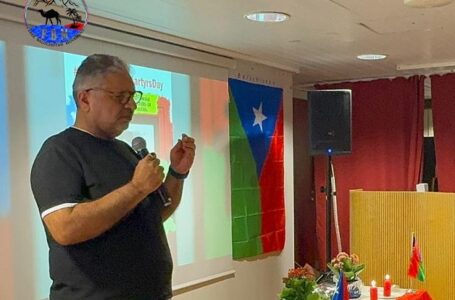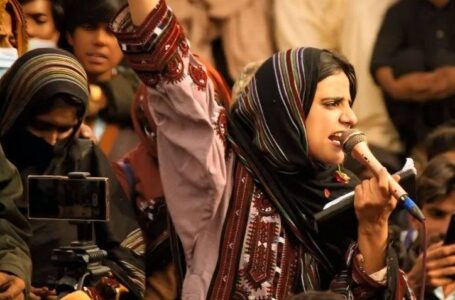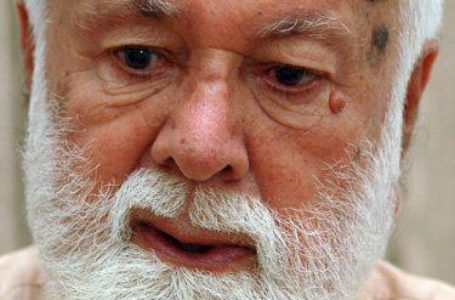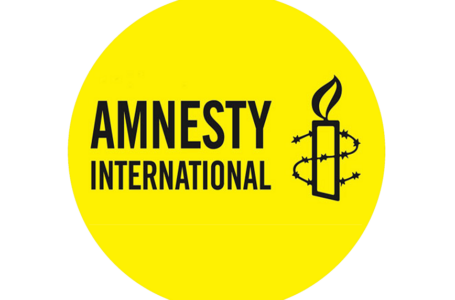Occupied Balochistan: A Chronicle of Genocide, Exploitation, and Resistance
Pahalgam Attack: Pakistan’s Terrorism Machine and the Forgotten Genocide of Balochistan
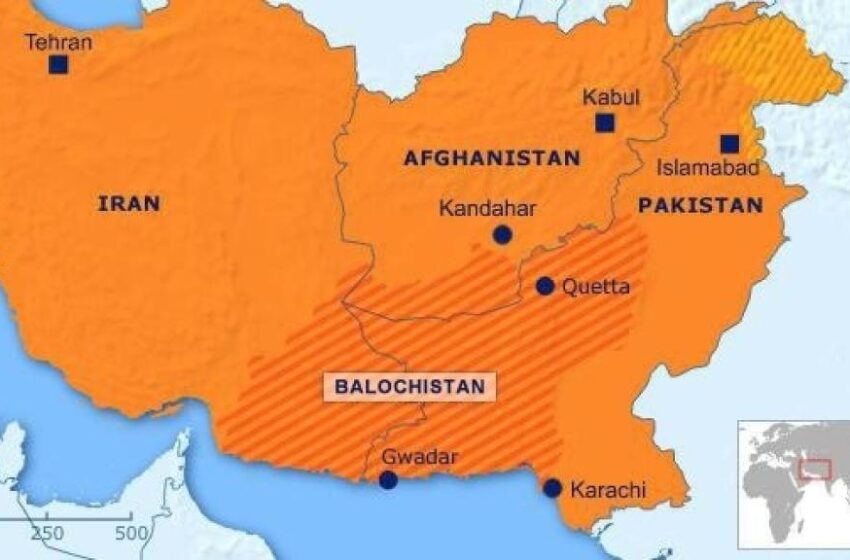
By MB Marri
Another bloody attack has hit India, this time in Pahalgam, a popular tourist destination. As with many of Pakistan’s previous strikes on Indian soil, the fingerprints of Pakistani-based terrorists are unmistakable. These attacks are not a surprise. They are part of a long and tragic history that has defined Pakistan’s relationship with India, a history where terror has become a consistent tool in the arsenal of Pakistan’s military and intelligence services.
This latest attack underscores a painful truth: terrorism is not just an unfortunate byproduct of Pakistan’s political landscape; it is its official policy. It is a strategy that has been carried out consistently since Pakistan’s creation in 1947, and it shows no sign of slowing down. Behind every attack, behind every blast, are the hands of those who operate from the shadows — the corrupt generals and religious fanatics who have long run the country. Pakistan’s entire existence, built on betrayal and violence, continues to survive by manipulating its people and its neighbours, all while cultivating chaos.
While the international community continues to speak of Pakistan’s nuclear capabilities as a significant deterrent, there is growing scepticism regarding the true extent of Pakistan’s military power. Many believe that the Pakistani military’s addiction to money and power has driven it to sell out its own future. Reports suggest that the country’s military, in its desperate thirst for survival, may have sold its nuclear technology to the highest bidder. It’s a chilling thought — but considering the history of Pakistani military corruption, it is not beyond belief.
Today, Pakistan’s military exists not to defend its people or its ideals but to exploit them. The generals, living lives of luxury and excess, do not protect their citizens. They rob them. They do not serve Islam — they use it as a tool to control the masses. And they do not uphold any sense of honour or dignity. Honour, to them, is something that can be bought and sold, as the country slips further into an abyss of political and moral decay.
India, on the other hand, remains a far more powerful and influential nation. Its size, its economy, and its growing geopolitical influence make it a force to be reckoned with. And yet, time and again, India’s response to terrorism has been slow, ineffective, and often constrained by a focus on diplomacy and international image. This failure to act decisively in the face of continuous attacks from Pakistan has cost the lives of countless Indian citizens, from the pilgrims at Pahalgam to the soldiers at Pulwama.
While Indian leaders may speak bravely in front of the media, when it comes to real action, the response is too often measured and restrained. This passivity in the face of aggression betrays the victims, offering them little more than symbolic gestures of defiance. Meanwhile, the Pakistani terrorists continue their slaughter with the full knowledge that India’s political system, distracted by image and protocol, is unwilling to do what it takes to end the bloodshed.
Beyond its conflict with India, Pakistan’s crimes extend much further, most notably to Balochistan. Since the illegal occupation of Balochistan in 1948, Pakistan has subjected the Baloch people to unimaginable suffering. Thousands of men, women, and children have been kidnapped, tortured, and murdered by Pakistan’s military forces. Entire villages have been wiped off the map, and mass graves filled with the bodies of tortured Baloch civilians have been uncovered. The Pakistani government’s relentless assault on the Baloch people is nothing short of genocide, an ongoing tragedy that has gone largely ignored by the international community.
The Baloch people have been denied their rights, their freedom, and their dignity for more than seven decades, and yet Pakistan continues to portray itself as the victim in this geopolitical drama. The Pakistani military, with its strategic manipulation of global powers, has managed to keep the world’s attention diverted. Meanwhile, the Baloch people continue to bleed, their suffering silenced by the Pakistani state’s monopoly on the narrative.
The skirmishes that occur along the Line of Control between India and Pakistan are often little more than a media circus. Both sides know the boundaries they must not cross, and both have much to lose in the event of full-scale war. Pakistan’s military, much like its government, thrives on the theatre of conflict, where provocations are made, borders are violated, and the global media focuses its attention on the “threat” of nuclear escalation. But behind the scenes, Pakistan’s generals are not concerned with a real war. Instead, they continue to train terrorists, sell arms and drugs, and loot the resources of Balochistan.
While the world watches this “border circus,” the real damage is done elsewhere. The Pakistani military’s true actions, the selling of their own people’s future for personal gain, go unnoticed by most.
The price of Pakistan’s terrorism is paid by the innocent — always the innocent. In India, it’s the pilgrims caught in the crossfire at Pahalgam, the commuters in Mumbai, and the soldiers in Pulwama. In Balochistan, it’s the farmer whose house is bombed, the student who is taken away never to be seen again, and the journalist who dares to speak the truth. And as the victims suffer, the generals continue to live in luxury, unaffected by the pain they have caused.
Pakistan’s leadership, steeped in corruption, cowardice, and betrayal, will not stop until they are held accountable. Until the world recognizes the true extent of Pakistan’s terror, and until action is taken to stop it, the violence will continue.
The Pahalgam attack is not just another act of terrorism. It is a symptom of a much deeper disease — the disease of Pakistan’s terrorism machine. A state that was built on lies, sustained by terror, and doomed to collapse under the weight of its own deceit.
The world must wake up. India must wake up. And most importantly, the people of Balochistan must not be forgotten. Their blood, shed every day by Pakistan’s dirty hands, cries out for justice. True peace will never come until Pakistan’s terrorism is crushed, and until the voices of the oppressed, whether in India or Balochistan, are heard.
Until that time, the innocent will continue to pay the price for the lies and the bloodshed that Pakistan’s leadership has made its legacy. Only then will there be hope for a future free from terror and oppression.
Disclaimer: The views and opinions expressed in this article are solely those of the author and do not necessarily reflect the official policy or position of Baloch Warna News. The publication provides a platform for diverse perspectives.

